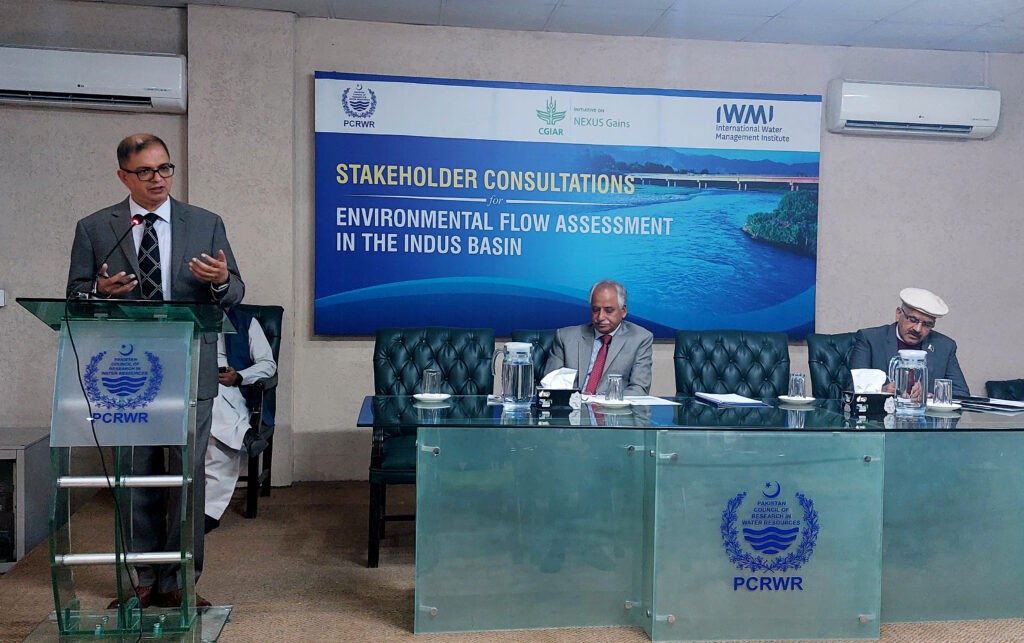
Addressing Water Scarcity Challenges through Collaborative Efforts
Islamabad – Pakistan grapples with a significant challenge – water scarcity, impacting crucial sectors like agriculture, food security, and societal well-being. In response to this pressing issue, the CGIAR’s NEXUS Gains Initiative, spearheaded by the International Water Management Institute (IWMI) and the International Food Policy Research Institute (IFPRI), is implementing a comprehensive strategy. This initiative aims to address low water productivity and advance the Sustainable Development Goals (SDGs) by transforming the food, land, and water systems in the Indus Basin.
A crucial aspect of this the initiative is the Environmental Flow (E-Flow) assessment of the Indus River basin, a pivotal vital step toward sustainable water management. Recognizing the pressing need for accurate data and informed decision-making, the International Water Management Institute (IWMI) and the Pakistan Council of Research in Water Resources (PCRWR) teams are set to apply an environmental flow model in the Indus Basin. This model aims to understand the environmental water needs for various river-reaches across the eastern and western rivers in the basin.
“Despite proactive measures, the focus on E-Flow in Pakistan remains insufficient, exacerbated by the absence of a dedicated department and a systematic approach to acquiring data for E-Flow assessment and management in the Indus Basin.” Said by Dr. Mohsin Hafeez, Director, Water, Food & Ecosystems, IWMI.
In response to this gap, IWMI and PCRWR have initiated a series of stakeholder consultations at national and provincial levels. “Our objective is clear – gather firsthand information and insights from key professionals, planners, and policymakers in the water and related sectors. This consultation aims to address critical questions for effective E-Flow assessment and management in Pakistan, including understanding E-Flow requirements, identifying available datasets, evaluating existing policies, establishing prioritization at federal and provincial levels, and fostering collaboration on ongoing and planned projects.” Dr. Mohsin Hafeez further added.
The consultation also included interactive discussions with which led by Dr. Muhammad Ashraf, Chairman of Pakistan Council of Research in Water Resources (PCRWR). The panel discussion focused on having a unified approach towards sustainable water management.
The stakeholders anticipated several outcomes from this consultation, including increased comprehension and awareness of E-Flow requisites, identification of available datasets, prioritization at federal and provincial levels, exchange of information on ongoing and planned projects, and investigation into necessary steps within the Water-Energy-Food-Climate Nexus to address E-Flow issues.
This collaborative effort aims to strengthen decision-making, promote collaboration, and establish a unified approach to effectively assess and manage E-Flow in Pakistan.